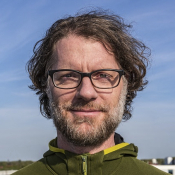MOSAiC Expedition Overview with Dr. Matthew Shupe
In this specific lesson, Dr. Matthew Shupe broadly defines MOSAiC. From the very first expedition of Fridtjof Nansen to present day, Arctic research remains at the forefront of environmental science and developments in our world's changing climate.
This video is part of a collection called “Frozen in the Ice: Exploring the Arctic,” offered through the online course platform Coursera, about the extraordinary MOSAiC Arctic research mission that has frozen an icebreaker into the Arctic Ocean, where it will drift for 13 months (mosaic-expedition.org).

